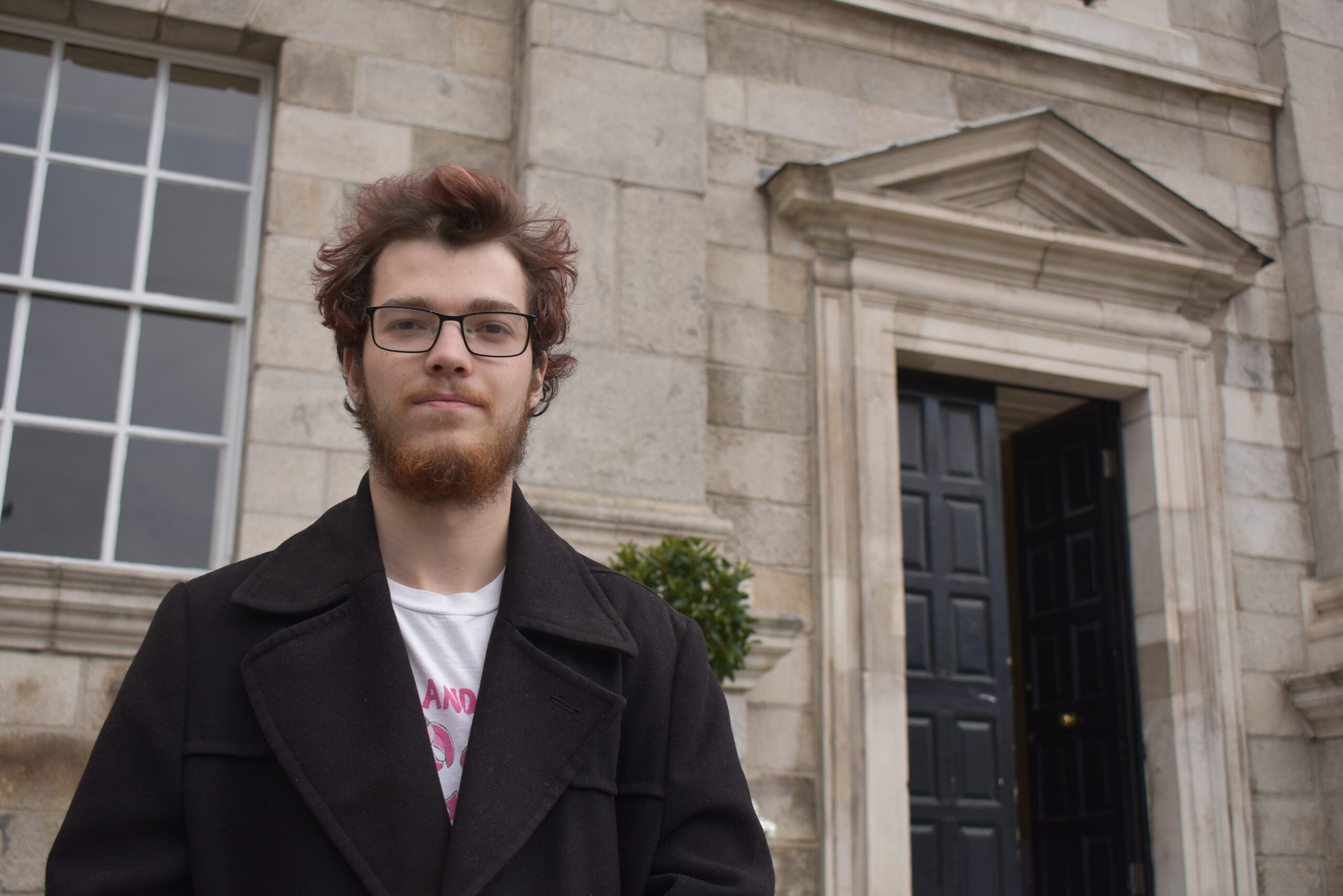If one were to stop and imagine what a student activist might look like, László Molnárfi, chairperson of the activist group Students4Change (S4C), would certainly fit the bill. Well-dressed with a comfortable-looking jacket, and hair just slightly dyed that borders on the cool side of unruly, he has a sort of quiet intensity to him.
Our conversation, focused on the housing crisis and the vulnerability of academia and the governmental response, feels slightly out of place inside a Dawson Street cafe with its patrons quietly walking by, coffees and hot chocolates in hand. Even so, his passion for the subject is evident in the way he dives into his ideas surrounding politics and its role for students.
We were sitting down to discuss the upcoming national student walkout organised by the Union of Students in Ireland (USI) and promoted by Trinity College Dublin Students’ Union (TCDSU) as a protest against the cost of living crisis in Dublin. S4C, which is not, as Molnárfi points out to me, an official Trinity society but rather a “grassroots group of leftist students and staff”, had been vocal in their support of the walkout. Molnárfi explains that they “support the walkout [and] encourage our students and even staff to attend”.
Speaking with him, it is clear that he views the core issues that the walkout intends to address as both economic and widely applicable. He noted: “a lot of the issues that students are facing run parallel to the issues that staff are facing. The system that underfunds academia, overworks administrative staff and casualises junior staff is the same system that makes it so students and their families go into debt when they finish their education”.
“It’s the same system that increases rent and fees for the student body, making the cost of education sky high and inaccessible to so many”, he added.
When asked about the issue of staff casualisation, which he defines as “putting staff, which can mean administrative, academic, or service workers, on precarious contracts”, and how it affects the student population, Molnárfi said that “there’s a rich history of students and staff uniting, students and workers uniting to challenge the system. Staff working conditions are student learning conditions”.
“More than that, the students of today are the staff of tomorrow, or the academics or professionals or service workers of tomorrow”, he added.
Molnárfi repeatedly brings up the idea of fighting against the system, and it is quickly apparent that it is foundational to both his and S4C’s approach to politics. As he describes it, the current government’s responses to demands for affordable housing and education have been insufficient. “Students and staff [are] constantly asking the government to step up, but they are not stepping up”, he noted.
According to S4C, real political changes occur from the borders of society taking action rather than through political manoeuvring within the system. From Molnárfi’s perspective, agitating for change is a necessary step in pushing against the issues that he is most concerned about, and one he fears that our own Union has not taken.
“The fundamental issue has become structural”, he said. “[Because] unions have, for so long, acted like apolitical service providers, they now have to be apolitical service providers. Even if I’m president of the TCDSU… I would also be trapped by the structure that has arisen wherein students rely on the student union for services that the college should be providing”.
The USI national walkout, for Molnárfi, therefore represents a movement towards embracing direct action in a way that is welcome, and surprising. “The fact that the USI is doing something like this has dropped my jaw. It really has! I was surprised that they went for this. It represents pressure from below”, he commented.
What ideas, then, lie at the centre of organisations like S4C and, by extension, direct action efforts like the walkout? To Molnárfi, the answer is simple: “you have this system where those of us who are the most vulnerable in society are treated with the greatest disrespect”.
“We are walking out on October 13th at 11.11am to show our discontent. It’s a return to grassroots politics, boots on the ground. That is what will make this government realise that they are in serious danger. Come next election, they will be decimated. They will be absolutely decimated”.







